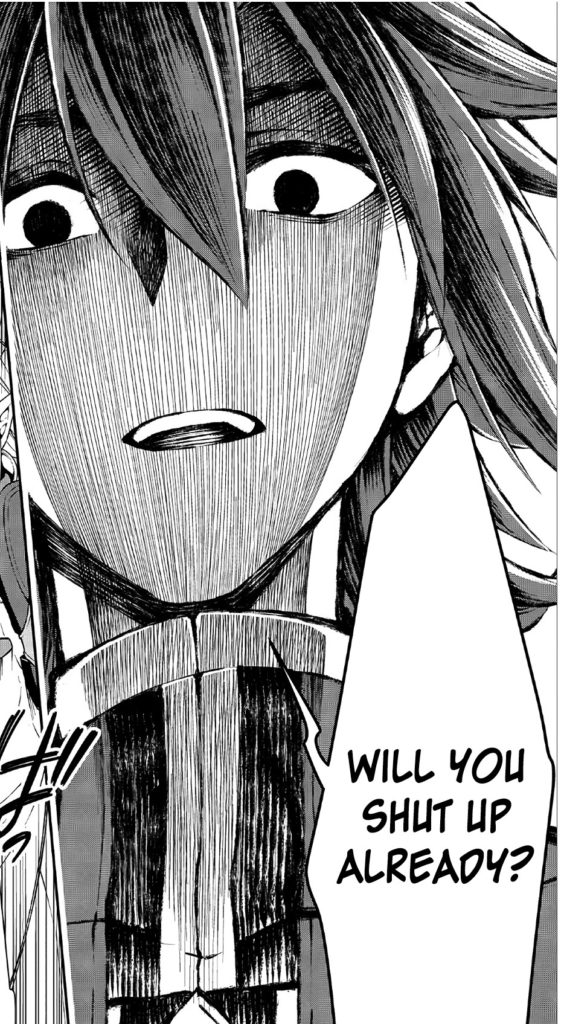
As with many people in the USA, I like to think of myself as a person who responds graciously to others. My self-image of a priest may be based more on old Bing Crosby movies in which he played a priest than in the reality I experience. My behavior is certainly not as based on the Church Fathers or the Desert Fathers as I would like it to be. Sadly, I find times when my inner self is thinking something different than my outer self is expressing.
Now, when your inner and outer self do not match, that means that there is an element of hypocrisy in your life. That is, I am portraying myself as being more pious than I really am, in the example I gave above. I attached the image you see to this post to point out that there have been times when the internal me just wants the person to whom I am talking to finish.
At the same time, while there is an element of hypocrisy in me, there is also an element of victory in me. You see, my inner temptation may be to say, “will you shut up already?” but my outer behavior has maintained the godly approach that I am supposed to maintain. The fact that I have those unfettered passions tells me that I have a long way to go on the road to perfection. I have no doubt that this road will not be finished until the Lord comes back and recreates me fully. But, the fact that I have not acted upon those unfettered passions tells me that I am beginning to control the sin that is in me. Nevertheless, I must not praise myself too much, for we all know that pride goes before the fall. Should I get too proud of maintaining my control over my passions, God will quickly come in and point out at least several dozen other areas in which I have totally failed in that control. And thus my pride will lead to my quick fall.
Little by little I am beginning to understand the monastics who look within themselves and speak of their overwhelming sin. St. Paul the Apostle himself claimed to be the chief of all sinners. Paradoxically, it was that very understanding of the sinfulness that was within him that allowed him to become the Apostle to the Gentiles and the writer of most of the New Testament. His inner self-examination helped free him from relying on himself alone or becoming arrogant as a result of the gifts God had given him. It was that inner self-examination with the concomitant self-realization that there were many unfettered passions within him that kept him humble and willing to obey His Lord’s commands. St. Paul warns us that we need to engage in that same self-examination.
Examine yourselves to see whether you are living in the faith. Test yourselves. Do you not realize that Jesus Christ is in you?—unless, indeed, you fail to pass the test! I hope you will find out that we have not failed.
2 Corinthians 13:5-6
That self-examination is something that is not just for the monastics to do. That self-examination is what each and every Christian is supposed to do, according to both Scripture and Holy Tradition. Self-examination is not simply to let us see our sin. It is also to let us see “Christ in you, the hope of glory.” As we examine ourselves, we need to learn to discern not only our unfettered passions but also see the marks, traces, fingerprints of Christ working within us to let us control our passions. And as we evaluate our outer behavior, we should see signs that we have refused to allow those passions to be expressed in this world.
If we fail to see either signs of Christ at work within us or signs that we have managed to refuse some of our passions from being expressed in this world, then we are in danger of failing the test. In that case, run to your priest and get the help you need to get back on track.



Excellent article, primo ??
Gracias